I’ll never forget the first time I heard about a water pie recipe. At first, I thought it had to be a joke, how could something made with water, sugar, and butter possibly taste good? But one bite and I was hooked. This vintage dessert from the Great Depression era is not just a testament to culinary resilience, it’s also surprisingly rich, silky, and comforting.
The water pie recipe was created out of necessity during tough times, using pantry staples when other ingredients were scarce. And yet, it yields a custard-like pie with a delicate flavor and a glossy, jellylike texture that feels both old-fashioned and oddly modern.
Table of contents
- Why This Water Pie Recipe Still Works Today
- Discovering the Water Pie Recipe: Recipe Card
- Tips for Perfect Water Pie Recipe
- Water Pie Recipe Variants You’ll Want to Try
- FAQ for Water Pie Recipe
- Health Benefits of Water Pie
- Pairing Suggestions
- Common Mistakes to Avoid
- Baking Tools You’ll Need
- Fun Fact About the Recipe
- Bringing It Home
Why This Water Pie Recipe Still Works Today
What makes this water pie recipe stand out, even decades after its invention? It comes down to a few smart tricks and the beauty of simplicity.
- Minimal Ingredients: All you need are water, flour, sugar, butter, and a pie crust. You might add vanilla or nutmeg for depth, but the magic is in how these basics transform.
- Science in Action: The flour acts as a thickening agent, creating a pudding-like filling as the pie bakes. It sets with a soft, smooth consistency that slices cleanly once cooled.
- Budget Friendly: In a time where grocery costs are climbing, this pie reminds us that you don’t need fancy ingredients to make something sweet and satisfying.
- A Blank Canvas: Its mild flavor means it pairs beautifully with fresh fruit, whipped cream, or even a dusting of cinnamon sugar. You can keep it rustic or dress it up depending on your mood.
One of the best things about this water pie recipe is its historical context. It brings a sense of nostalgia and appreciation for resourcefulness, which is why it has recently resurfaced in food conversations, social media, and even cookbook revivals.
And let’s be honest, there’s something incredibly satisfying about turning a humble glass of water into a glossy, golden pie that people rave about.
Discovering the Water Pie Recipe: Recipe Card
Tips for Perfect Water Pie Recipe
- Prevent Soggy Bottoms: Use a high-quality pie crust, preferably homemade, for the best results. A slightly thicker crust will hold up better against the liquid filling.
- Butter Distribution: Ensure the butter is evenly dotted across the pie for consistent baking and a smooth texture.
- Mind the Oven Temperature: Begin at 400°F (200°C) to set the crust, then reduce to 375°F (190°C) for slow and even cooking of the filling.
- Cooling is Key: Patience is essential, let the pie cool completely to allow the filling to set properly before slicing.
- Experiment with Flavors: Add a pinch of cinnamon, nutmeg, or even lemon zest to elevate the pie’s flavor profile.
Water Pie Recipe Variants You’ll Want to Try
1. Vanilla Water Pie
Adding a teaspoon of vanilla extract to the flour mixture creates a fragrant, pudding-like dessert with a rich custard aroma. It’s my go-to twist and adds depth without complicating the process.
2. Lemon Sugar Water Pie
Mix grated lemon zest with the sugar and replace 2 tablespoons of water with lemon juice. The citrus brightens the flavor and gives the pie a light, refreshing finish. Serve with whipped cream for a perfect spring dessert.
3. Cinnamon Sugar Water Pie
A sprinkle of cinnamon in the sugar layer adds warmth and spice. For a deeper flavor, use brown sugar in place of white sugar—it creates a slightly caramelized, cozy profile.
4. Chocolate Water Pie
Add 1 to 2 tablespoons of unsweetened cocoa powder to the flour and sugar mix. The result is a subtle, chocolate-flavored version that pairs well with a dollop of whipped topping or even a drizzle of chocolate syrup.
FAQ for Water Pie Recipe
The recipe gets its name from its main liquid ingredient—water. Despite its simple name, the pie transforms basic ingredients into a luscious dessert.
Yes, but keep in mind that salted butter will add a hint of saltiness. Adjust the sugar to maintain a balanced sweetness.
Once cooled, cover the pie with plastic wrap and store it in the refrigerator for up to 3 days. Bring to room temperature before serving.
Absolutely! Use a gluten-free pie crust and substitute the all-purpose flour with a gluten-free alternative.
Yes, both have a soft, creamy filling, but Water Pie uses water instead of milk, giving it a lighter texture and unique flavor.
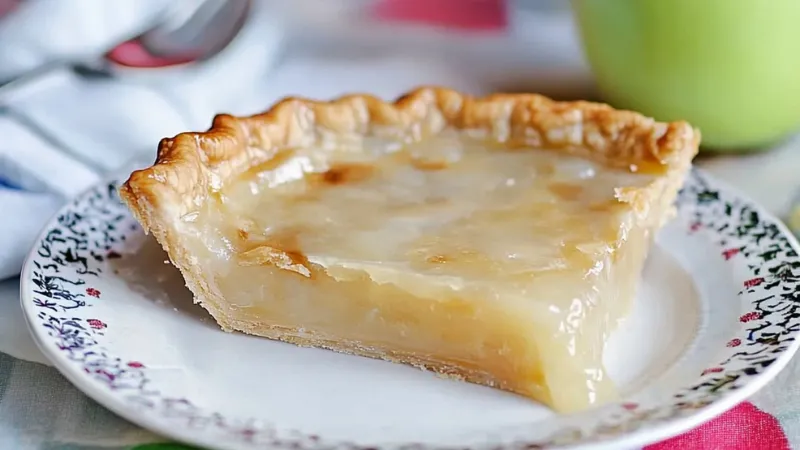
Health Benefits of Water Pie
Though simple and made with basic ingredients, the water pie recipe offers some nostalgic and practical benefits:
- Accessible Ingredients: Its reliance on pantry staples makes it a cost-effective dessert suitable for any budget.
- Low in Saturated Fats: Compared to heavier desserts, water pie has a relatively low amount of saturated fats.
- Customizable Nutrition: By swapping ingredients, such as using plant-based butter or gluten-free flour, this pie can be adapted to fit various dietary preferences.
- Historical Connection: Water pie is a culinary piece of history, reminding us of the resourcefulness and resilience of earlier generations.
Pairing Suggestions
- Whipped Cream: A dollop of homemade or store-bought whipped cream adds a light, airy contrast to the custard-like filling.
- Fresh Berries: Raspberries, blueberries, or strawberries provide a burst of tartness that balances the sweetness of the pie.
- Caramel Drizzle: A light drizzle of salted caramel sauce elevates the dessert with a touch of indulgence.
- Ice Cream: Serve a slice of water pie warm with a scoop of vanilla or cinnamon ice cream for a decadent dessert experience.
- Hot Beverages: Pair with a cup of coffee, tea, or hot cocoa for a comforting treat, especially in colder months.
Common Mistakes to Avoid
- Overbaking: If left in the oven too long, the filling can dry out or crack. Keep a close eye on the pie as it approaches the end of the baking time.
- Uneven Butter Distribution: Dotting the butter evenly across the filling ensures a smooth texture and avoids clumps.
- Skipping Cooling Time: Cutting into the pie too soon can result in a runny filling. Allow it to cool completely for proper setting.
- Thin Crust Issues: Using a crust that’s too thin may lead to sogginess or difficulty slicing. A slightly thicker crust works best.
- Wrong Flour Measurement: Not leveling off the flour correctly can result in an improperly thickened filling. Use a measuring spoon or scale for accuracy.
Baking Tools You’ll Need
- Pie Pan: A 9-inch pie pan is ideal for this recipe. Ceramic or glass pans help distribute heat evenly.
- Mixing Bowl: A medium-sized bowl for combining the dry ingredients.
- Whisk or Fork: For evenly blending flour and sugar.
- Pastry Cutter or Knife: To trim or adjust the pie crust if needed.
- Measuring Cups and Spoons: Precise measurements are crucial for the filling.
- Butter Knife or Spoon: To dot the butter across the filling evenly.
- Cooling Rack: To allow the pie to cool completely and set properly before slicing.
Fun Fact About the Recipe
The water pie recipe emerged during the Great Depression as a creative solution to the scarcity of resources. Its surprising richness and flavor earned it a place in many family recipe boxes, becoming a nostalgic favorite for generations. This humble dessert showcases how necessity often drives culinary innovation, turning simple ingredients into a delicious treat with enduring charm.
Bringing It Home
In a world of over-the-top desserts, there’s something deeply satisfying about a pie that takes the simplest ingredients and turns them into something special. This water pie recipe is a piece of culinary history, but more than that, it’s a dessert that continues to deliver comfort and surprise.
Its mild, custard-like filling has a silky, melt-in-your-mouth texture. It’s sweet without being overwhelming. And the experience of making it, watching water and flour transform into something sliceable and delicious, is genuinely rewarding.
If you love the simplicity of Water Pie, you’ll enjoy our Honey Bun Cake Recipe. Like the Water Pie, this cake uses minimal ingredients to create a moist and flavorful dessert.

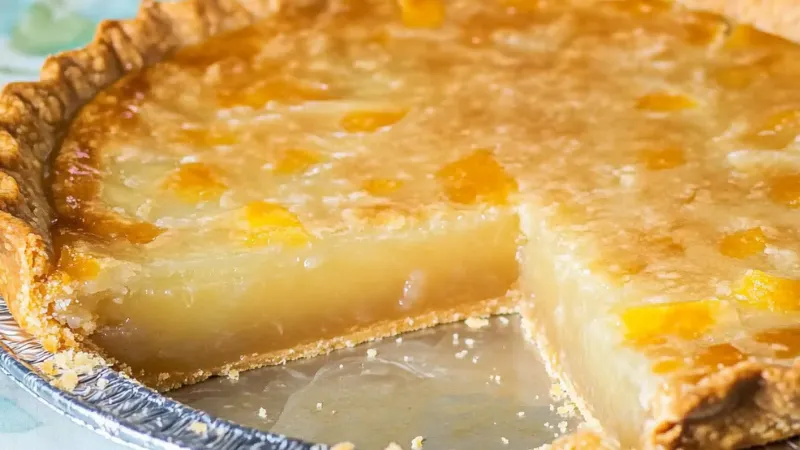
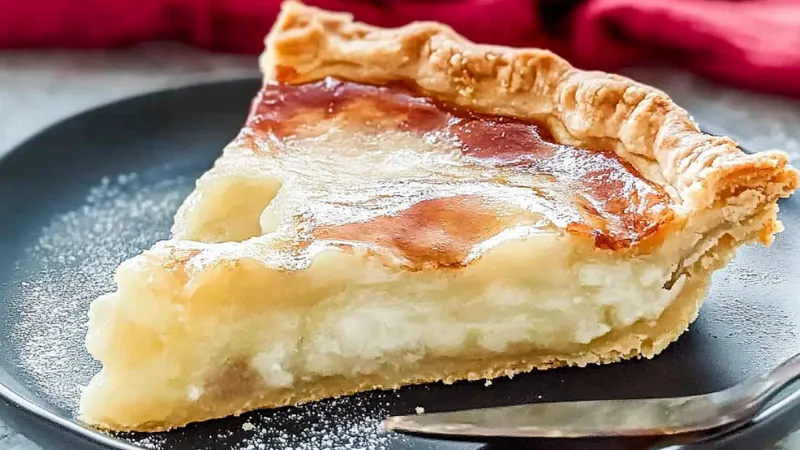



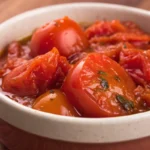
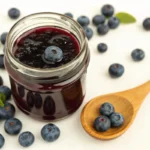

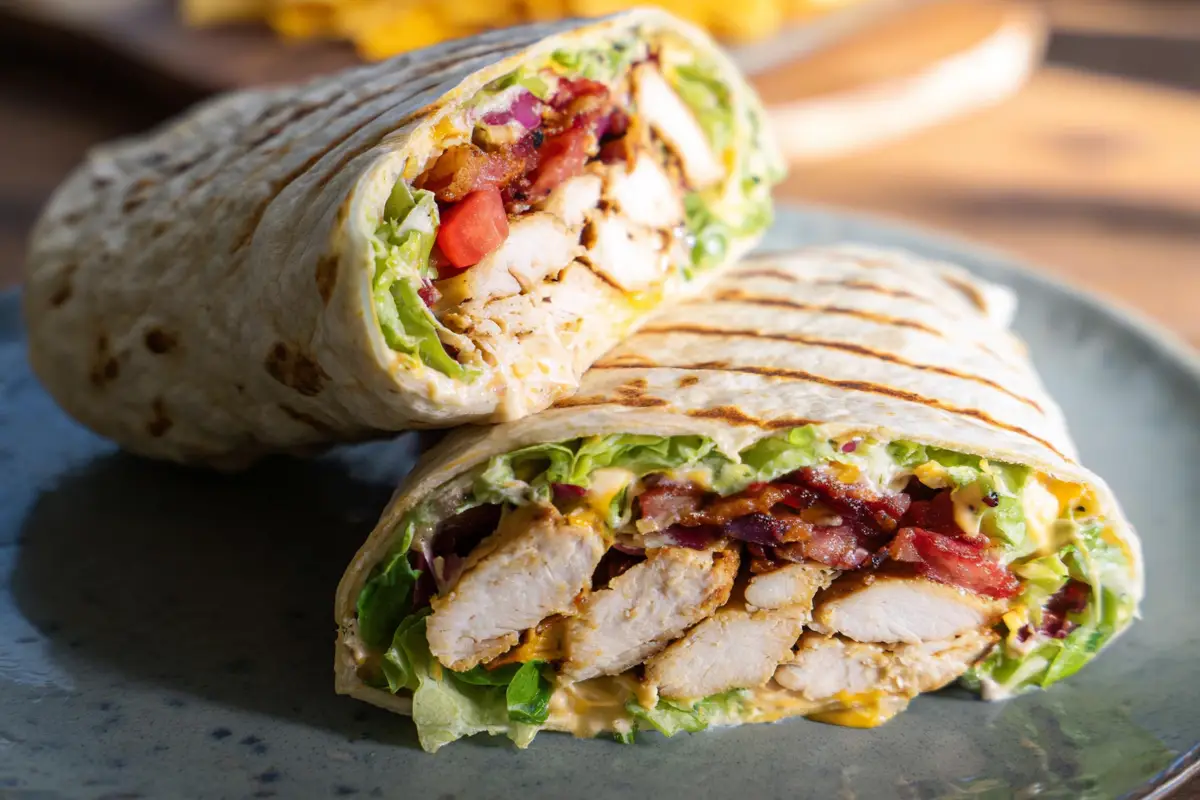

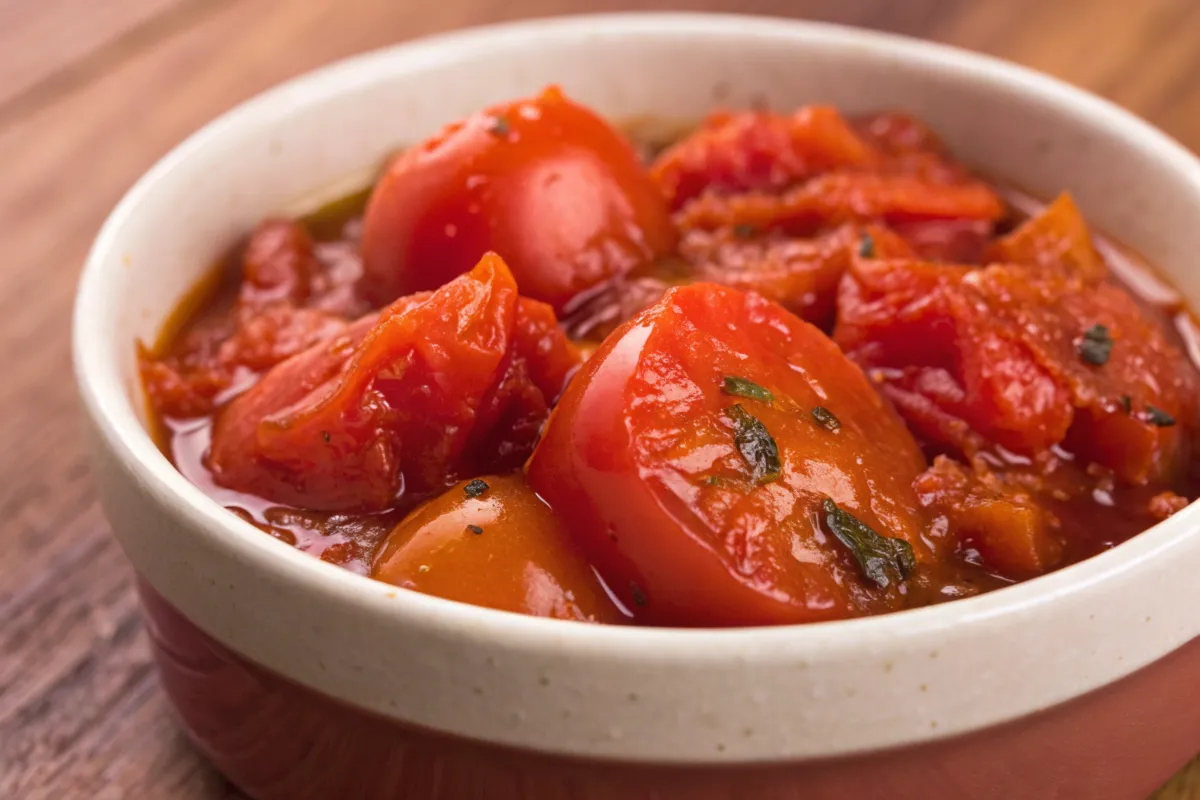
Leave a Reply